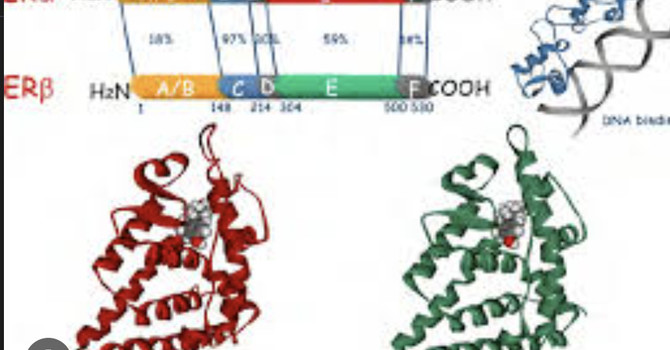Navigating the journey of perimenopause and menopause is a unique experience for every woman. As a physician who has personally experienced this phase of life, I understand the profound changes that can occur in your 30s and 40s, thanks to shifting hormones. In this article, I want to shed light on the challenges you may face and offer guidance on how to embrace this transformative period.
In your 30s, you may begin noticing subtle hints that your hormonal landscape is evolving. And once you reach your 40s, you might find your body undergoing unexpected changes, particularly in the form of fat accumulating around your midsection – often referred to as the dreaded "menopause muffin top."
If you find yourself grappling with any of the following issues, please know that you're not alone, you're not broken, and there are ways to manage these challenges:
1. **Mood swings**
2. **Weight gain**
3. **Brain fog**
4. **Low libido**
5. **Vaginal dryness**
6. **Hair thinning and skin changes**
7. **Insomnia**
These symptoms often manifest during perimenopause, the transitional phase that typically spans from your mid-30s to your 50s. Perimenopause is a stage marked by significant declines in your sex hormones—estrogen, progesterone, and testosterone. While these hormones have fluctuated throughout your life, they now take on more extreme shifts. Your body no longer produces sufficient sex hormones or maintains their balance as it once did.
The resulting hormonal imbalances give rise to a broad array of symptoms. Women often report experiencing fatigue, bloating, sleep disturbances, and joint discomfort during this period. It's essential to recognize that these symptoms are linked to the fluctuations in your hormones.
Let's delve into the specific symptoms associated with low levels of these sex hormones:
**Low Estrogen:**
- *Irregular periods*: As progesterone levels start declining in your mid-late 30s, your menstrual cycles may become irregular.
- *Headaches and migraines*: Fluctuating estrogen levels can contribute to headaches by affecting blood vessel dilation and water retention.
- *Anxiety*: Progesterone plays a crucial role in promoting calm and relaxation through its interaction with the brain chemical GABA. Low progesterone levels can lead to anxiety, insomnia, and irritability.
- *Weight gain*: Progesterone supports thyroid function, which in turn affects metabolism. As progesterone decreases, metabolism slows down, leading to weight gain.
**Low Progesterone:**
- *Irregular periods*: Similar to estrogen, progesterone helps regulate menstrual cycles.
- *Headaches and migraines*: Low estrogen levels can contribute to headaches.
- *Anxiety*: Progesterone's relationship with GABA means that low progesterone can lead to anxiety, insomnia, and irritability.
- *Weight gain*: Progesterone's role in supporting thyroid function impacts metabolism, and its decline can result in weight gain.
**Low Testosterone:**
Low testosterone can lead to various issues, including:
- *Hair loss*
- *Incontinence*
- *Increased fat*
- *Loss of muscle tone and strength*
- *Fatigue*
- *Lack of motivation and self-confidence*
- *Low libido*
- *Moodiness and irritability*
Every woman's experience with perimenopause and menopause is unique, but the key to thriving during this stage is providing your body with the extra support it requires.
Here are five practical tips tailored to help you navigate this journey with confidence:
**1. Workout Smarter, Not Harder:**
Ditch the old adage of "no pain, no gain." Listen to your body and choose exercises that feel good and suit your energy levels. High-intensity workouts can elevate stress hormones, hindering weight loss. Instead, opt for gentler exercises like walking, pilates, yoga, or strength training. These activities can boost metabolism and support heart health without overwhelming you.
**2. Stress Management:**
Stress can contribute to weight gain and make it harder to lose weight. Implement stress management techniques such as journaling, laughter, yoga, meditation, or simply taking a leisurely walk in nature. Breathing exercises, like coherent breathing (inhale for five counts, exhale for five counts), can be particularly effective for resetting your nervous system.
**3. Focus on Food Quality:**
What you eat matters. Whole foods rich in nutrients, healthy fats, lean meats, and fibrous vegetables support hormone balance and make weight management easier. Minimize caffeine, sugar, and alcohol, as they can exacerbate menopause symptoms. Opt for a balanced combination of healthy fats, fiber, and protein in your meals to enhance gut function and reduce stress response.
**4. Prioritize Sleep:**
Hot flashes can disrupt your sleep, but avoiding sugar, alcohol, and caffeine can help minimize their frequency and intensity. Quality sleep is crucial for maintaining a healthy weight. It boosts the hormone leptin, which signals fullness, and helps regulate metabolism. Create a sleep-friendly environment by dimming the lights, keeping the room cool, and reserving the bedroom for sleep and intimacy only.
**5. Practice Mindfulness for Better Sex:**
Stress affects every aspect of menopause, including your sex life. Physical, mental, or emotional stress triggers the production of stress hormones, which can interfere with sex hormone production. Practicing mindfulness can help you become more present in the moment and reignite your sensuality. Start with simple mindfulness exercises outside the bedroom, then apply them to your intimate interactions. By tuning into your senses, you can enhance pleasure and desire.
Remember, menopause is a transformative phase, and embracing it with self-compassion and self-care can help you navigate this journey with grace and resilience.

Anat Sapan, MD
Contact Me



